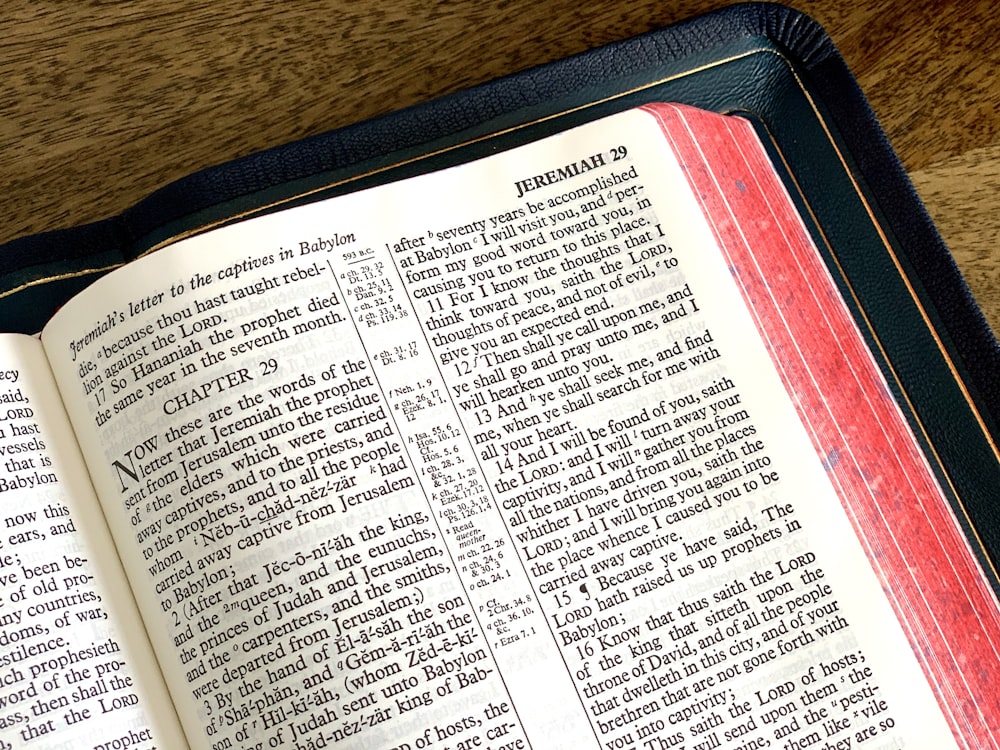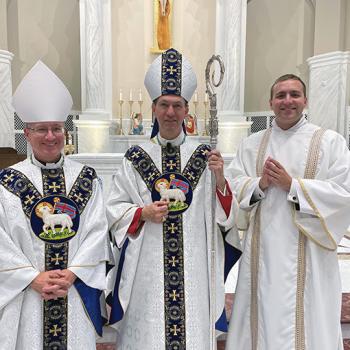The book of Jeremiah is one that is both perplexing and enlightening. There is much that happens within the text, so much in fact that that some of it may go unnoticed because something else is being focused on. By sheer number of words Jeremiah is the longest book in Holy writ. Within its pages we see a last attempt by Yahweh, through Jeremiah, to set Judah on the right path.
Jeremiah: The Weeping Prophet
Jeremiah is called the weeping prophet for exceptionally good reason. He warns the leadership of Israel several times to turn back to God of calamity will strike. His prophecies fall on deaf ears and the kingdom fall to Babylon and the people are placed into a seventy-year exile. He weeps over the destruction of Israel and how the people have rebelled against Yahweh (Jer. 13:17).
This post is not an exhaustive exegesis of the book, but Jeremiah 1:4-19 will be examined. The purpose for this is to examine how the literary and rhetorical features evident passage assist in proper theological interpretation. The book of Jeremiah can be perplexing, and as a result there is some bad exegesis present regarding it. A better understanding of these literary and rhetorical devices helps to remedy that.
Literary Context
The literary context in which Jeremiah 1:4-19 is crucial to unpacking its meaning. Jeremiah was written during a real historical period and there are literary settings in which it was written. One of the literary themes that runs throughout Jeremiah is the plans of Yahweh to punish those who reject him. However, he set aside and consecrated Jeremiah before he was born (Jer. 1:5).
To fully understand this, it is helpful to look at the first three verses of chapter one. When that is done, we can see that Jeremiah truly was chosen. He began his ministry during the reforms of King Josiah, and we are told that his father is Hilkiah who in one of the priests in Anathoth. Anathoth was a Levite city, and therefore was home to priestly families. There is a high probability that Jeremiah was raised in the traditions of the priests and had a theological upbringing.
Not only is this showing Jeremiah as chosen, but Jer. 1:4-19 is also a narrative prophecy about his call to prophecy. This narrative prophecy details his divine commission and God equipping him with the tools needed. In this narrative Yahweh also warns Jeremiah about how everyone will be against him, but God will be there watching over everything. This was done over a series of two visions.
Rhetorical Devices In Jeremiah
Jeremiah is a book that is filled with rhetoric. In verses 11 and 12 Jeremiah is quoted as seeing an almond branch and the Lord says that he is watching. It may not be noticed in English as easily, but in Hebrew it is a wordplay that falls under paronomasia. The word almond in Hebrews is shaqed, whereas watching is shoqed. Almond trees bloom in the winter and the Lord will be watching over the tree, which is Jeremiah in this case.
Another rhetorical device known as accumulation, or accumulatio, occurs in 1:18. It is marked by a triad of the word into. This reinforces the call of Jeremiah as Yahweh will reinforce him and does so using what appear to be indestructible objects. This device is also used in 1:10 and later chapters to emphasize despair and destruction.
The prophet is also an expert in the use of hyperbole. Hyperbole is a rhetorical exaggeration that is used to get a point across. This rhetorical device comes into play in Jeremiah 1:5. There is no doubt that Jeremiah was called to his ministry before he was born. The use of hyperbole exaggerates this fact in a wonderful way. This allows the reader, and listeners, to understand the importance of the mission that God has given Jeremiah.
What Are The Theological Implications?
When we look at literary features and rhetorical devices used in Jeremiah 1:4-19 many theological implications arise. We see that the prophet is from a real place and this place carried with it real consequences in history. We get hints of this in 1:13-16 when the kingdoms to the north are mentioned. At this time the Assyrian empire fell, and the Babylonian Empire became the major superpower in the region. Later in the book we see the Babylonians invading Judah and this leads to the 70-year exile.
From a theological perspective we can see that following idols, and not God, will ultimately lead to ruin. This may not be apparent, though at times it will, while on Earth. However, that judgment will come after death. Have we followed the Lord, or have we followed idols? In the case of Judah, God used a foreign nation to exact his punishment. Later on God would also judge Babylon.
Another theological implication is seen at the very beginning in 1:4-8. God has a plan for each of us. This plan does not start late in life, but like Jeremiah, it starts as soon as you are created. We also see that life is a precious gift. How many of us say that we are not equipped to do something that God has called us to do? The prophet says that he is too young and is not a good speaker (Jer. 1:6). True, wisdom comes with age, but God equips his servants. We all have a gift that can be used to benefit the church, and some use the same excuse that Jeremiah gave. Like Jeremiah, God is with you if you strive to seek and do his will.















